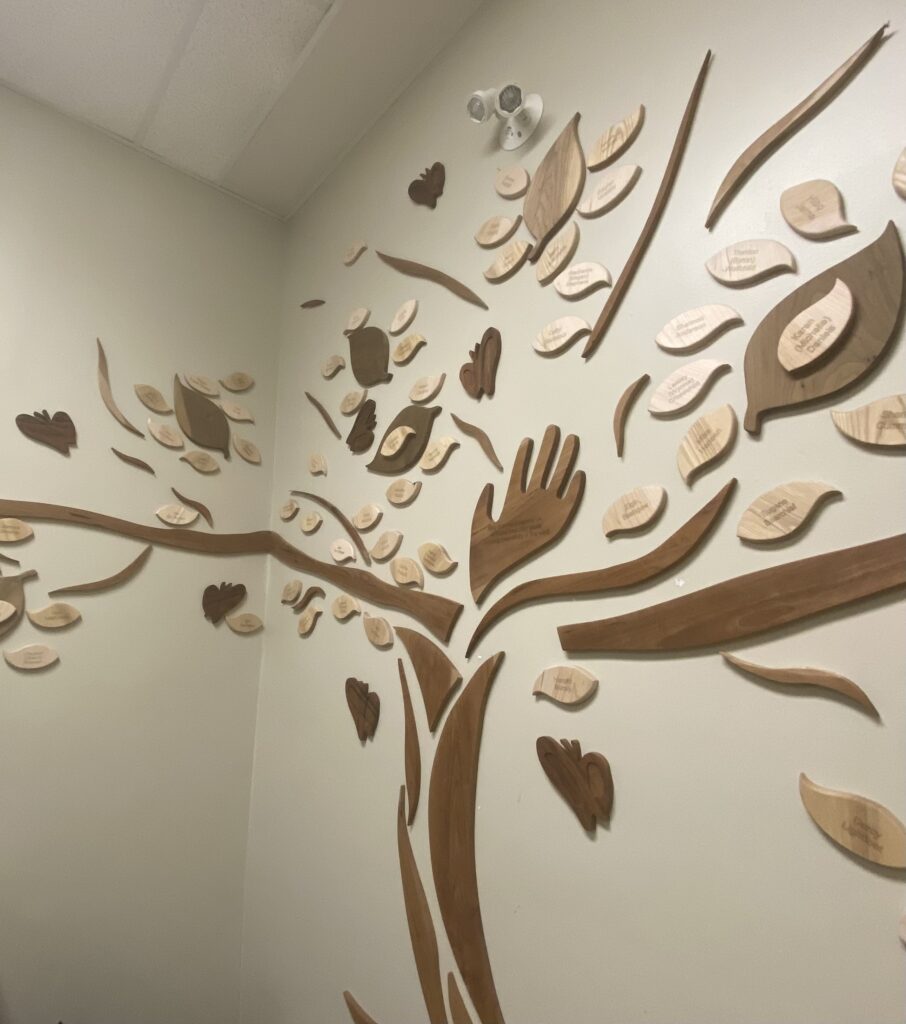With stories from both her personal and professional life, Sarah addresses the danger of stigma.
Stigma is defined as ‘a set of negative and unfair beliefs that a society or group of people have about something.’ When it comes to Canada’s opioid crisis, stigma is a major contributor to the problem. As someone who works in a harm reduction organization, Sarah is intimately familiar with the issue.
“We’re all one or two decisions away from being in the shoes of individuals that often people stigmatize,” she says. “We don’t always have control of things that happen to us in our lives.”
Sarah shares the story of a friend who she grew up with, who had a large family at a young age. Things were stressful for them with multiple children, but then the friend’s spouse tragically died. Sarah’s friend found escape from the grief, trauma, and unimaginable stress in opioid misuse.
“We hear this story a lot,” says Sarah,
“Addiction is tied to trauma of some sort. Maybe if I was in their shoes, I might be the same way. People don’t wake up and say, ‘I really, really want to do this today.’ It’s more: I feel I need to because the physical aspects of my body without it are very unpleasant. Or the mental and emotional capacity is not there for me and I need this to escape.”
Unfortunately for Sarah’s friend, although they had made mention of seeking recovery, the crisis caught them first. Both parents died from an opioid poisoning, leaving behind their young children. It’s a harrowing story, underpinned by extreme events. However, extreme events don’t have to end in crisis.

“We have several individuals in our program who had their own contracting company, worked at an airline, had these big full-time jobs, had families,” says Sarah. “But they had things happen, had an accident, then were prescribed medications, which their body becomes dependent on.”
If we look at everyone who struggles with opioids as unworthy or somehow lesser, it makes it so much harder to help people. It is more than possible to break out of the crisis with the right kind of support, compassion, and patience.
“It’s worth making people feel supported and not giving up on them because of one mistake,” says Sarah. “Please treat everybody like a human. These are people with feelings, and they deserve the same level of respect as everyone else.”